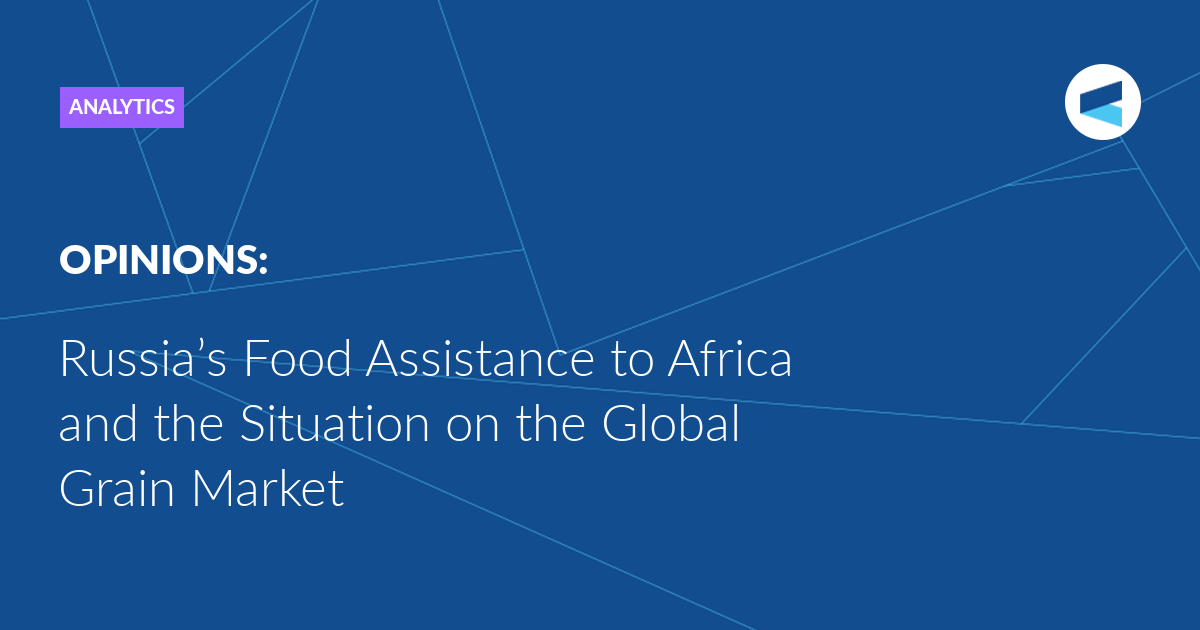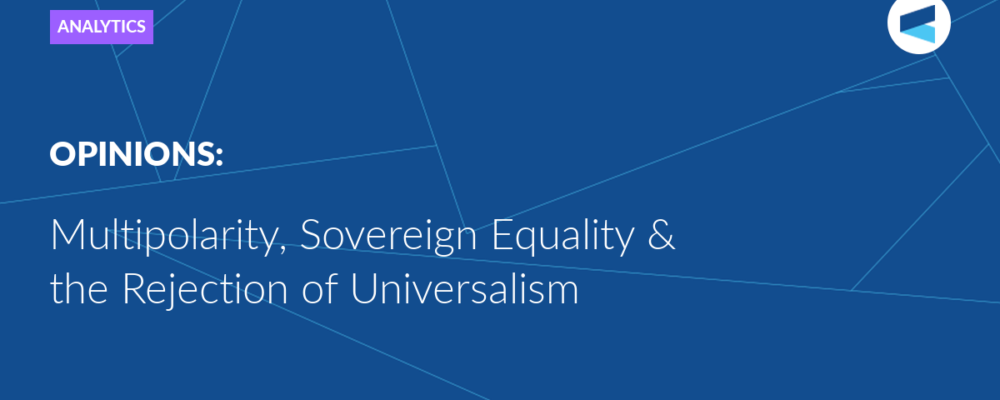Having chosen The Formation of New Centres of Growth as the Cornerstone of a Multipolar World as its main theme for 2024, the St Petersburg International Economic Forum featured discussions on a wide range of international development matters. The western sanctions against Russia placed food security among the challenges the world is facing today. The President of Russia announced the key objectives in terms of developing agriculture.
The first one deals with improving performance within the sector. The second objective consists of promoting import substitution as an alternative to imposing prohibitive customs duties as a means for reducing agricultural imports. The third and probably most important task focuses on promoting international cooperation in terms of technology sharing and engaging in joint research and technology projects. Vladimir Putin went on to say that facilitating the development of African countries must serve as a bedrock of a multipolar world order. Using Africa’s abundant natural resources for promoting inclusive growth is one of the central objectives on the international development agenda, considering that the continent possesses vast territories which can be used to strengthen and expand agricultural production.
In today’s world, the ambiguous nature of the global food market defines food security-related matters. On the one hand, there is a lot of competition on this market with the leading exporters and importers of agricultural products calling the tunes. On the other hand, there are many other countries on the market – they have to adapt to volatile prices defined by the way major players steer the market. In addition to this, there are also countries which need food assistance and where over 35 percent of the population suffers from extreme food shortages and lacks even the bare minimum they need. In his remarks at SPIEF 2024, Director of the UN Food and Agriculture Organisation’s (FAO) Moscow Office, Oleg Kobyakov, said that “there can be a substantial deterioration in terms of food security in 17 countries of the world,” with Yemen, Sudan, South Sudan, the Gaza Strip and certain African countries facing the threat of hunger.
The global food market feels the pinch whenever a disaster or emergency occur, be it in the realms of geopolitics, environment, climate or humanitarian issues. All of them almost invariably result in sharp price fluctuations. The world will remember for a long time what happened in 2022 and 2023 when even slight political changes sent grain prices soaring. But I suggest that we focus on 2024. Wheat prices followed a downward trajectory on commodity exchanges in the beginning of the year, but in March this decline subsided, giving way to a sharp increase caused by fears related to unfavourable planting conditions in the key producing regions, in particular, Russia, Europe, and the United States. Export prices of corn, rice, barley and sorghum also surged, and FAO’s food price index was largely consistent with the changes in wheat prices. In late June, wheat futures on the Chicago exchange started to depreciate, falling by over 13 percent between May 27 and June 12. But grain prices continued to grow, as demonstrated by the Russian markets.
The leading wheat exporters and importers responded to this extreme volatility on the grain market by seeking to reinforce their standing on the global market.
As of July 1, the EU imposed prohibitive tariffs on grain imports from Russia and Belarus. These import duties are expected to reach €95 per tonne, which is almost half of what wheat costs on the EU markets. This will entail higher customs duties on grain, oil-bearing plants, and their derivatives. To justify these measures, the EU officials talked about these efforts as a means to prevent the destabilisation of the European market, but this posture does not hold water. Chair of the Board at the Russian Union of Grain Exporters, Eduard Zernin, said that Russia was expected to export 70 million tonnes of grain in the 2023/2024 season, including 53 tonnes of wheat. That said, EU countries account for less than 1 percent of Russia’s exports. Mr Zernin went on to say that Russia is expected to increase its share in global grain exports to almost 25 percent, up from 20 percent during the preceding season. This is why we have every reason to treat the EU’s initiatives as an effort to ramp up sanctions pressure in order to compete for dominance on the global grain market where Russia has been enjoying positive momentum.
As for Russia, it has been gradually reducing its wheat export duties throughout 2024. In doing so, it pursues two objectives: to increase export volumes and generate more revenue for exporters. Having imposed a ban on durum wheat exports on 11 December 2023, Russia kept it in place until 31 May, 2024, and now plans to expand durum wheat cultivation by 30 percent. This spring, Russia also suffered from unfavourable climate conditions during the planting season when a cold snap ravaged ten regions in central Russia, while the southern regions suffered from dry weather. This is why the country now focuses on minimising losses and preventing price increases. Minister of Agriculture Oksana Lut said that “Russian agricultural producers have been able to overcome the challenges dealing with replanting their fields after the cold snap, but the looming drought creates new concerns.” According to the Russian Union of Grain Exporters, grain production may decrease by 13.7 percent in 2024, while the decline in grain exports may exceed 20 percent compared to 2023.
Turkiye, Egypt, Iran, Bangladesh, Saudi Arabia and Algeria were the main importers of Russian grain during the 2022-2023 season. This raises the question regarding Turkiye’s initiative to halt wheat imports between June 21and 1 October 15, 2024. In fact, this country benefited like no other from the Black Sea initiative and entered into an alternative deal with Russia to acquire 1 million tonnes of grain. By June 2024, Turkiye bought another 4.3 million tonnes of grain from Russia, and has now up to 9 million tonnes in reserve, which has had a major impact on the domestic prices. This is why Turkiye decided to suspend imports in the second half of 2024. Oksana Lut responded to these developments by saying that Russia would send the wheat it expected to sell for Turkiye to other countries. In any case, Turkiye’s actions have had a disruptive effect on the global grain market.
But what about humanitarian aid deliveries to poor countries? To quote Prime Minister of Russia Mikhail Mishustin, “despite the obstacles created by the collective West, primarily in terms of financial servicing of the transactions, logistics, and insurance, over the past five years, we have shipped about 380,000 tonnes of food as humanitarian aid to Africa and Asia. February 2024 saw the completion of a gratuitous transfer of 200,000 tonnes of Russian wheat to six poorest African countries: Mali, Burkina Faso, Zimbabwe, Eritrea, Somalia, and the Central African Republic.”
Speaking at the SPIEF 2024 plenary session, President of the Republic of Zimbabwe Emmerson Mnangagwa expressed a special gratitude for delivering mineral fertilisers as humanitarian aid at the very best moment in terms of the agricultural cycle. The African leader went on to remind the audience that Zimbabwe received 23,000 tonnes of Russian fertilisers as humanitarian aid in May 2024 after the country declared a state of national emergency following a major drought and a pest invasion. This comes on top of another free shipment of 11,000 tonnes to Zimbabwe in 2023. Emmerson Mnangagwa also said that “in this situation, Zimbabwe’s close partnership with Russia played a very important role. We received grain and fertiliser from Russia and will have an incredible harvest thanks to this shipment.” Russia is also expected to work with Zimbabwe to share its experience in irrigation and making wider use of drought-resistant grain varieties.
Western countries have gone to great lengths in their efforts to block Russia’s humanitarian aid deliveries to African countries by overtly restricting them and imposing sanctions, with a primary focus on Russian fertiliser shipments, which have always had a big impact in the developing world. The EU still retains about 150,000 tonnes of fertiliser, mostly in Latvia. However, the UN has stepped in to facilitate the delivery of over 111,000 tonnes of humanitarian aid to Malawi, Kenya, Nigeria and Zimbabwe, including the 23,000 tonnes of fertiliser as mentioned above.
In a recent statement, FAO recognised that Western sanctions targeting food, mineral fertiliser, logistics and settlements make global hunger worse, while this trend is expected to gain traction around the world.
The Valdai Discussion Club was established in 2004. It is named after Lake Valdai, which is located close to Veliky Novgorod, where the Club’s first meeting took place.
Please visit the firm link to site






